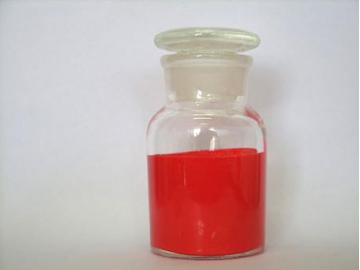Thiram
Protective fungicide applied to foliage to control: Botrytis spp. on grapes, soft fruit, lettuce, vegetables and ornamentals; rust on ornamentals; scab and storage diseases on apples and pears; leaf curl and Monilia on stone fruit. Used in seed treatments alone or in combination with added insecticides or fungicides to control damping-off diseases (e.g. Pythium spp.), and other diseases like Fusarium spp. of maize, cotton, cereals, legumes, vegetables and ornamentals. Also used as a bird repellent.
| CAS Registry Number | 137-26-8 |
| Formulation | Thiram 97% TC, 480 g/l SC ,98% TC, 80%WP |
| Packing | Powder: 25kg bag or customized |
Effective against Rice seedling diseases,cotton damping off,wheat root rot,wheat smut,corn Seedling blight,and so on.
| CAS | 10605-21-7,137-26-8 |
| Competitive Product | Fungicides |
| Crop | Target |
| Rice | Bakanae Disease |
| Wheat | Root Rot, Smut |
| Corn | Seedling Blight |
| Cotton | Damping off |
| Packing | Liquid: 1L-200L Solid: 1g-25kg |
Control of sucking insects, including rice-, leaf- and planthoppers, aphids, thrips and whitefly. Also effective against soil insects, termites and some species of biting insects, such as rice water weevil and Colorado beetle. Has no effect on nematodes and spider mites. Used as a seed dressing, as soil treatment and as foliar treatment in different crops, e. G. Rice, cotton, cereals, maize, sugar beet, potatoes, vegetables, citrus fruit, pome fruit and stone fruit. Applied at 25-100 g/ha for foliar application, and 50-175 g/100 kg seed for most seed treatments, and 350-700 g/100 kg cotton seed. Also used to controls fleas in dogs and cats.
Protective fungicide applied to foliage to control: Botrytis spp. on grapes, soft fruit, lettuce, vegetables and ornamentals; rust on ornamentals; scab and storage diseases on apples and pears; leaf curl and Monilia on stone fruit. Used in seed treatments alone or in combination with added insecticides or fungicides to control damping-off diseases (e.g. Pythium spp.), and other diseases like Fusarium spp. of maize, cotton, cereals, legumes, vegetables and ornamentals. Also used as a bird repellent.
